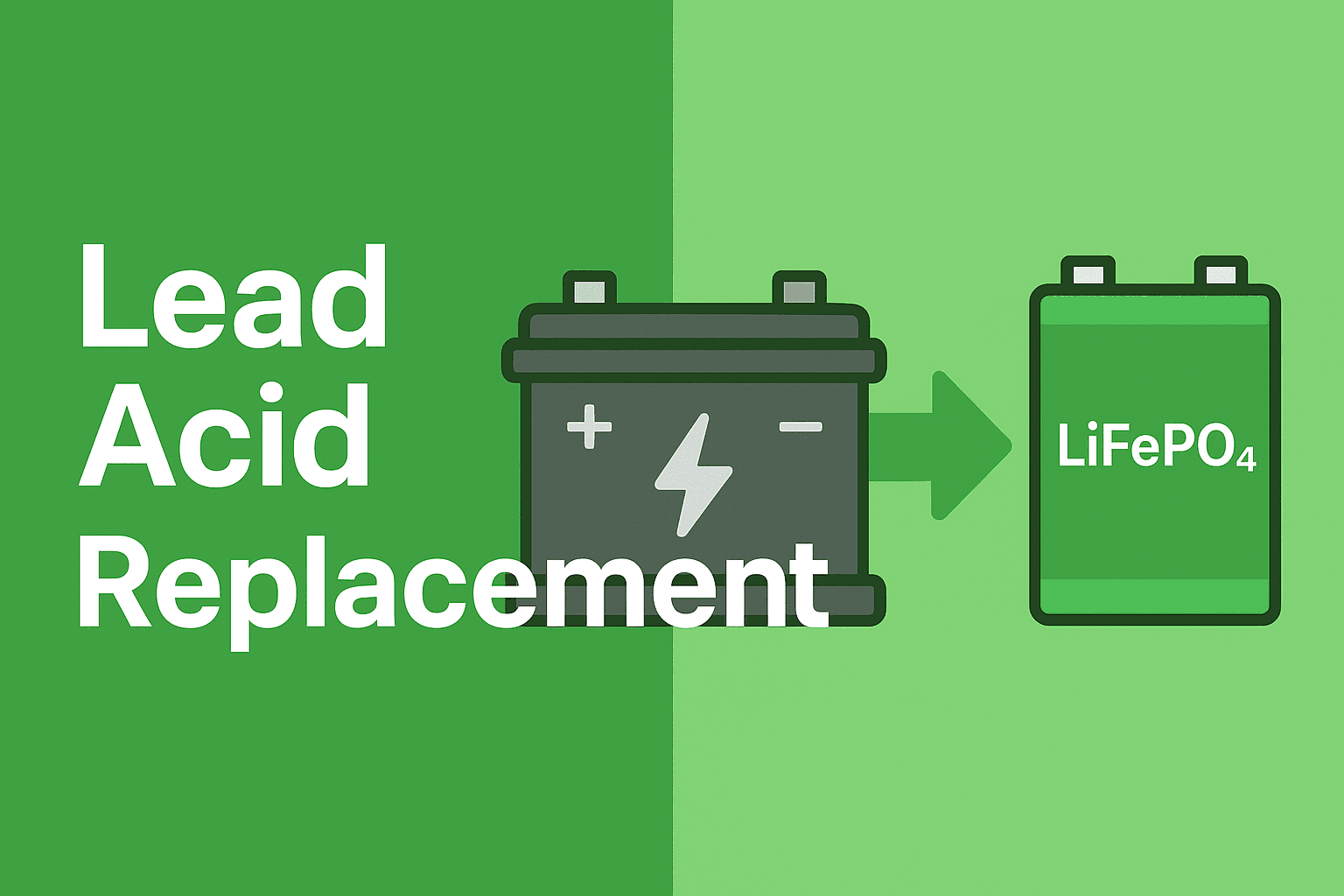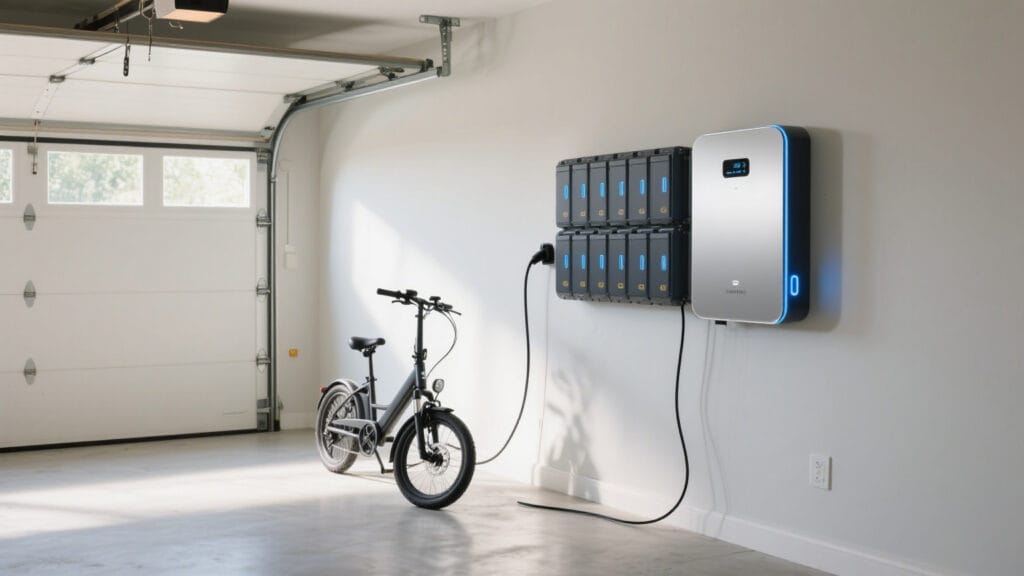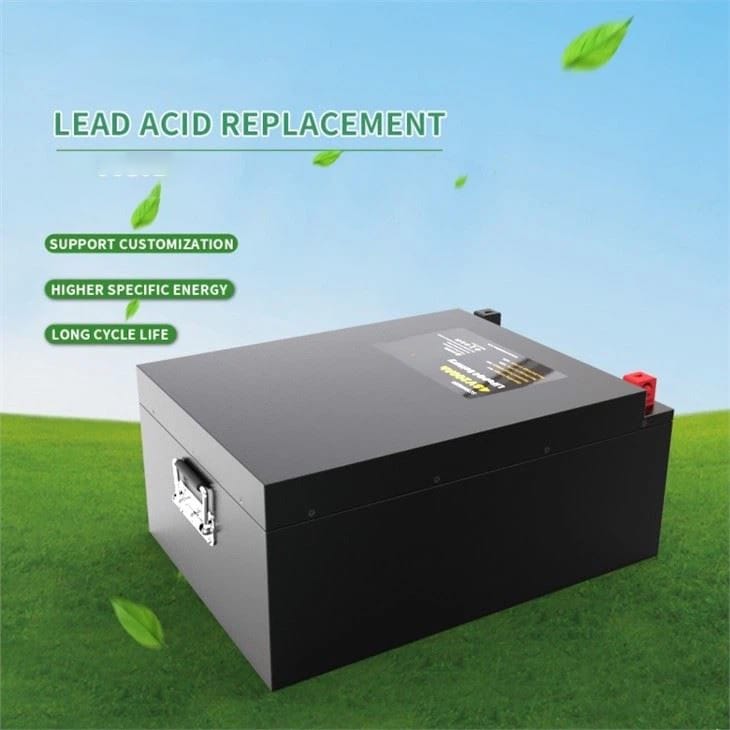Lead Acid Replacement: Why Lithium Batteries Are Becoming the Preferred Choice
Lead Acid Replacement: In the field of energy storage and power supply, lead-acid batteries have long been the dominant technology. Due to their maturity and relatively low cost, they are widely used in automobiles, UPS systems, electric tricycles, forklifts, and small storage solutions. However, as energy demands increase and renewable energy expands, the limitations of lead-acid batteries have become more apparent. Lithium batteries, especially LiFePO₄, are now emerging as the ideal replacement.

Limitations of Lead-Acid Batteries
| Limitation | Description |
|---|---|
| Heavy & bulky | Low energy density leads to larger volume and heavier weight. |
| Short cycle life | Typically less than 500 cycles under deep discharge. |
| High maintenance | Some models require regular water refilling and suffer from sulfation. |
| Environmental concerns | Lead and acid disposal poses pollution and recycling challenges. |
| Low charging efficiency | Charging is slow with ~70–80% efficiency, lower than lithium. |
Why Choose Lithium Battery Replacement?
| Advantage | Lead-Acid | LiFePO₄ Lithium |
|---|---|---|
| Energy density | Low | 2–3× higher |
| Cycle life | 300–500 cycles | 3000–6000 cycles |
| Charging speed | Slow | Supports 1C or faster charging |
| Safety & stability | Acid leakage, risk of damage | Excellent thermal stability, safer |
| Environmental impact | Contains lead, pollution risk | Green, recyclable, eco-friendly |
Replacement Trends in Key Applications
- Solar Energy Storage – LiFePO₄ is replacing lead-acid due to higher efficiency and lifespan.
- Electric Vehicles & Golf Carts – Lighter weight and longer driving range improve user experience.
- UPS & Data Centers – Lithium supports long life and high power demand, reducing replacement frequency.
- Industrial Equipment (Forklifts, AGVs, Robots) – Boosts operational efficiency and lowers maintenance cost.
- Marine & RV Power Systems – Compact size and long service life fit long-term backup scenarios.
Future Outlook
With global carbon neutrality goals and booming storage demand, the phase-out of lead-acid batteries is inevitable. Lithium batteries—particularly LiFePO₄—offer higher density, longer lifespan, and better safety, and are expected to replace lead-acid across most applications in the next 5–10 years.
Meanwhile, new technologies such as solid-state batteries and sodium-ion batteries are advancing rapidly, pointing to a greener and more diverse energy future.
Conclusion
“Lead Acid Replacement” is not just a product upgrade, but a complete energy transition.
Switching from lead-acid to lithium means better performance, lower costs, and a more sustainable solution. Whether for home storage, industrial use, or mobility, lithium batteries are now the best choice to replace lead-acid technology.
WHO IS ECAVIX?

OUR SERVICES
Customisable
If you want to buy customized products,please contact us,We hope you message, contact us
Secure
We Including CB, KC, PSE, CE, IEC, ISO, MSDS, and UN38.3 approvals
Online
If you For any inquiries, please leave a message on our website or contact us via WhatsApp. Our customer service will respond within 24 hours via email/WhatsApp.
Strategic
We deliver tailored solutions through data-driven insights and agile execution. Partner with us to transform challenges into opportunities—efficiently and effectively..

